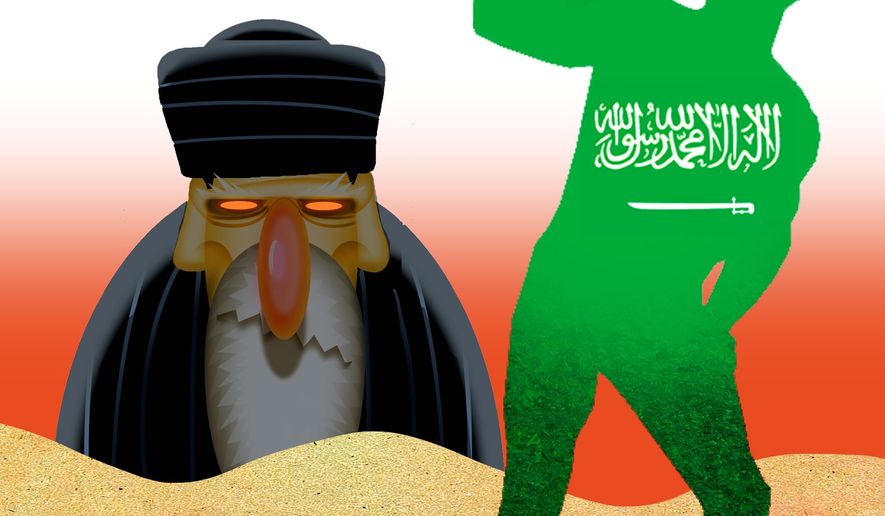OPINION:
President Trump’s unprecedented visit to Riyadh last May did, in effect, provide the underpinnings for the Crown Prince Mohammed bin Salman’s (MBS) dramatic plans to bring Saudi Arabia into the 21st century. It is outlined in his Vision 2030 plan to wean the kingdom off oil by greatly diversifying the economy.
Fundamental to accomplishing his Vision 2030 plan is the elimination of as much corruption as possible in the kingdom. In the past weeks, MBS has not only purged and arrested members of the royal family, government officials, and businessmen, but he has also taken on the ultra-conservative clerics and curtailed their religious police force.
His opponents claim that this is nothing but a power grab. Not so. What actually is taking place is a consolidation of power to not only sideline his opponents and the ultra-conservative clerics, but also to create a real, functioning government, which is critical to enticing foreign investment for the success of his Vision 2030 plan.
Inherent in the MBS plan is the liberalization of the kingdom’s society. It should be noted that 70 percent of the kingdom’s population is 30-years-old or younger. The decree granting women the right to drive is key to bringing women into the work force. While he has pursued greater rights for women, he has taken a hard line against the Kingdom’s Wahhabi establishment.
MBS’ base constituency of impatient millennials is similar to Mr. Trump’s domestic base. They will not waste another 30 years of their lives dealing with onerous Islamic restrictions.
What MBS is doing is unprecedented for Saudi Arabia, but it is not unprecedented in other Middle Eastern countries. Countries like the United Arab Emirates (UAE) have modernized rapidly and opened up to not only outside investment but to tourism and travel. MBS understands that this is part of the successful formula for Saudi Arabia.
Mr. Trump has stated, “I have great confidence in King Salman and the Crown Prince of Saudi Arabia, they know exactly what they are doing.” The kingdom’s attorney general has stated that the recent purge of corrupt Royal and officials is only “Phase One.”
Some have tried to compare MBS to the shah of Iran in his drive for control. They say that’s what brought the shah down. What brought the shah down was that he was undercut by President Carter, who refused to see the evil that Ayatollah Khomeini represented along with his other misguided policies.
Underlying MBS drive to modernize Saudi Arabia is the need to directly confront Iran’s expanding Shi’ite Crescent. MBS has already obtained the support of Bahrain, Egypt, Israel, UAE, and others. Such an alliance, with our support, is necessary to confront Iranian hegemony in Iraq, Lebanon, Syria, and Yemen. We must prevent Iran from achieving a “land bridge” from Tehran to Lebanon.
The Trump administration is being undercut, however, not only by the Obama holdovers and the Muslim Brotherhood, but at times by his own secretaries of State and Defense. After all, they will not even support Saudi Arabia and the coalition of the willing to put pressure on Qatar to break its alliance with Iran. Further, their failure to support Kurdish independence, our only loyal allies in the fight against the Islamic State, was unconscionable.
A policy to support MBS in confronting Iran, and Syria, even though the Islamic State has been largely defeated, may provide a unique opportunity. While Vladimir Putin, Bashar Assad, Ayatollah Khamenei and Recep Tayyip Erdogan were all busy congratulating themselves in the Russian resort city of Sochi, on eliminating the Islamic State from Iraq and Syria, the turmoil is far from over. Syria is a disaster zone. It has been estimated that it will take a massive amount of aid, something on the order of $250-350 billion to rebuild.
The biggest loser in Syria was Turkey’s Erdogan, who was the main sponsor of the anti-Assad opposition that evolved into the Islamic State. Further, as a result of the failed coup (as well as his own increasingly jihadist policies), his relations with the U.S. have become more hostile.
His options are severely limited. Mr. Erdogan’s main reason for siding with Mr. Putin was our support for the Syrian Kurds. His plan to enter into a military relationship with Mr. Putin by purchasing the Russian S-400 air defense system certainly should bring into question his reliability as a NATO ally. Further, there is no way the sale of 100 F-35 fighters to Turkey can or should go forward.
To support MBS’ plans to confront Iran, the Trump administration should not participate in any rebuilding effort in Syria while Mr. Assad remains in power. For now, we should keep our forces and support with the Syrian Kurds. We need to reestablish our relations with the Iraqi Kurds and help them in their drive for independence.
In Lebanon, we need to reassess the current situation. When Saad Hariri announced his resignation as prime minister, he stated it was because Iran and Hezbollah control Lebanon. He told the truth. Mr. Hariri’s return to Lebanon and the canceling of his resignation looks to be a sell-out to Iran. Mr. Hariri presented — disingenuously — his government and the Lebanese Armed Forces as a counter to Iran and the Hezbollah armed forces control of Lebanon. We know that is not the situation. Any further economic and military aid to Lebanon should be put on hold.
The Trump administration has a unique opportunity to help not only Saudi Arabia modernize, but also to prevent Iranian hegemony. Putting pressure on Mr. Putin and Iran by implementing the above recommendations will help reestablish the U.S. as the strong horse in the Middle East.
• James A. Lyons, a retired U.S. Navy admiral, was commander in chief of the U.S. Pacific Fleet and senior U.S. military representative to the United Nations.




Please read our comment policy before commenting.